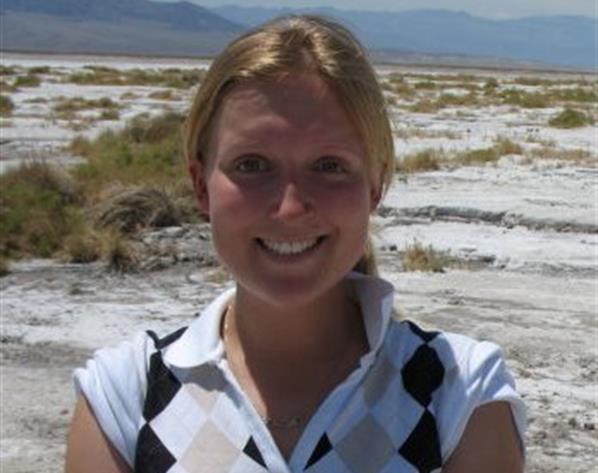
"We are IB" - Interview number 3. We interview Christiane Husemann (CH) who talks about her time as an IB-student.
Please, introduce yourself to us.
CH: Hi, my name is Christiane. I was born and raised in Germany, where I lived until 2007 after which I moved to Silicon Valley and then to just outside of Toronto, Canada, in 2010. Here I was able to fulfill my dream of owning a horse property, where my husband and I now breed Hanoverian horses. We have a 2 year old son, who is soon going to be a big brother, and currently have 9 horses on our property. I work in Finance and Operations at Lufthansa InTouch which excites me every day I come into the office. Our office is the competence and service center for North as well as South America, so it is a huge privilege and responsibility to service so many customers from all over the world.
What were your first career steps after receiving your IB Diploma? Which university did you attend after your IB education and which university degrees were bestowed?
CH: After receiving my IB Diploma I attended Jacobs University Bremen (then called International University Bremen) and got my B.Sc. in Biochemical Engineering, followed by my M.Sc. in Biological Recognition, whereby my main focus was enzyme engineering.
What was your first job after IB and university?
CH: When I moved to California I worked as Scientific Recruiter, recruiting scientists for temporary as well as permanent positions throughout the San Francisco Bay Area.
Was your IB Diploma ever a topic in a job interview?
CH: I don’t recall that my IB Diploma in itself was ever a topic in a job interview, but I was also very quick at completing all my degrees, so the total package of my education has always been the topic of conversation and extremely well perceived.
How do you evaluate the IB Diploma as preparation for university? Do you think the IB Diploma is an advantage in comparison with other degrees?
CH: I think the IB Diploma was the perfect preparation for university. I was well equipped for the amount of workload that was presented to me in University (my B.Sc. was 3 year program). My hands on science skills were a huge benefit to me. Especially in a field as experimental as protein engineering, the ability to think independently and out of the box is invaluable. I am not too familiar with other degrees, but I always found that I was provided with a sense of confidence that I some of my colleagues did not possess. Even today, there is almost no task I would not be willing to take on, as I know that preparation, logical thinking, and the ability to follow through will yield success.
What do you value most concerning your IB education, which elements of the IB Programme do you still remember today?
CH: I remember almost everything about my IB programme. In the odd binder I will still find booklets of math formulas or TOK (Theory of Knowledge) notes that put a smile on my face when I read them now. I think what I remember the most though is my extended essay, which even though it is not related to anything I do today, I am still incredibly proud of. I wrote about Friedrich Dürrenmatt’s “Die Panne” and why the author was so particular about the choices of wine his characters drink throughout the development of the play. It fully allowed me to develop creative thoughts in a task as structured as an essay, and just be receptive to whatever results I may obtain, without having set expectations of the outcome.
What are the biggest challenges of the IB Programme?
CH: Looking back on the IB Programme I would probably say that the workload was quite extensive. It was challenging though – not overwhelming – which is an important difference. I enjoyed the diversity, but as I am not an avid reading enthusiast, my two literature based native language courses sometimes made me cringe a little about the amount of reading we got to do. I nonetheless enjoyed the analysis of the materials we were reading.
Whom would you advise to receive an IB education? What skills should a student have in order to receive the IB Diploma?
CH: I see the IB education as a huge benefit to those students who have already developed a particular interest in a certain field such as the languages, arts or the sciences, as it allows these students to have an increased focus of education on these subjects. The ability to select classes as well as their level of intensity allows students to create a program for themselves that can be similar to that of a specialized arts or science school. The added benefit I see here though, is that the requirements of the IB itself still promote diversity in the subjects a student is asked to complete, which ultimately provide them with a well-rounded education that caters to their particular interests. This being said, any student that prefers a broad range of courses, without any particular focus is also well served by the large amount of intriguing course options of the IB. In order for a student to receive the IB Diploma I think two important skills are the ability to work independently and to set goals for oneself. Character traits rather than skills that I find very important as well are a thirst for knowledge, a positive attitude, and not being afraid to ask questions. It is an amazing program, and like with so many things in life, you will get to reap the benefits if you are happy to invest some passion and effort into it.
Would you choose the IB Programme for your school education again?
CH: Anytime in a heartbeat.
Dear Christiane Husemann, thank you very much for the interview.
Photo (c) Christiane Husemann